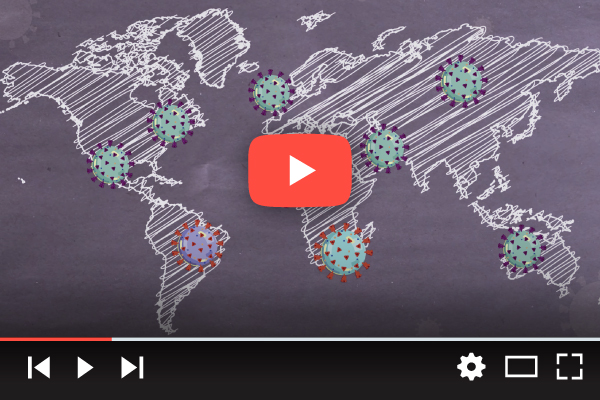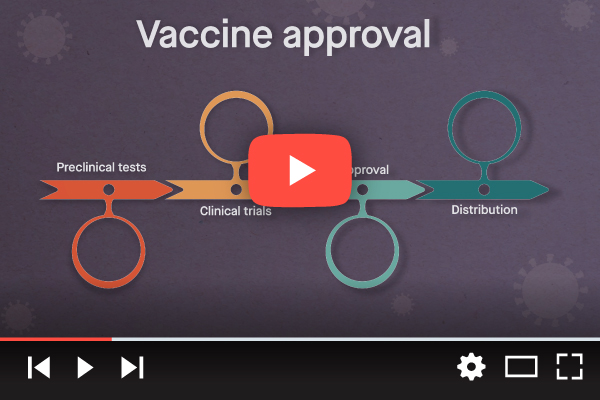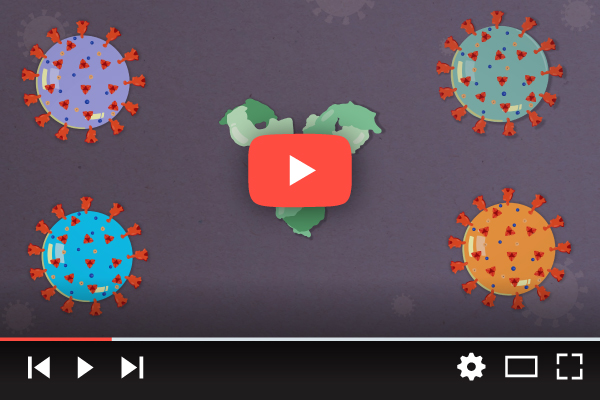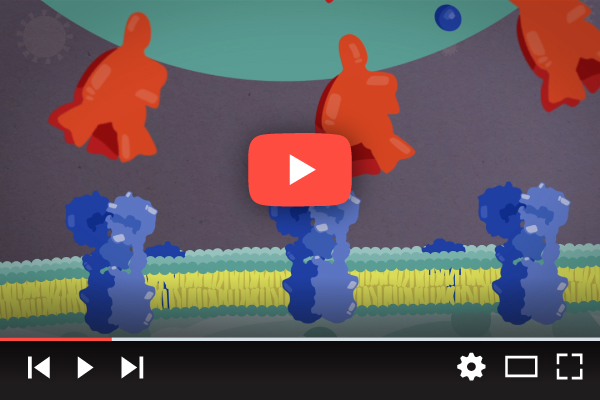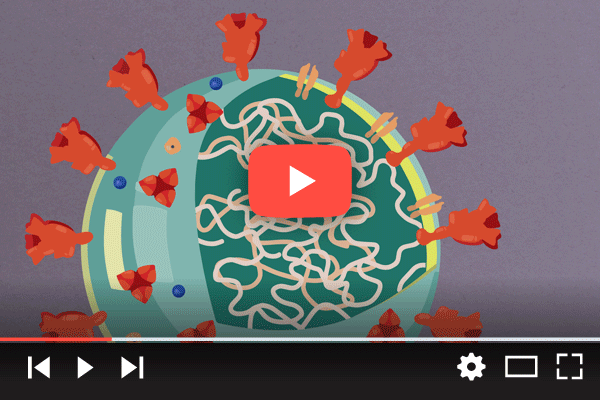Science, Simplified: Videos that answer big questions about the coronavirus.
As part of our mission to inspire and educate, we’ve created a video series designed to break down complex topics for science enthusiasts everywhere.
What is a coronavirus? How does it infect our cells? And how would antiviral medicines or vaccines work against COVID-19? These are just some of the topics explored in the Science, Simplified series.
Each animated video dives into a different aspect of the novel coronavirus, guiding you on a journey that spans the tiniest genetic machinery to the function of whole organ systems. Whether you’re a teacher, a student or someone who has a life-long interest in scientific discovery, you’ll find the Science, Simplified videos both engaging and instructive.
Illustrations by Hailee Perrett, Ward Lab, Scripps Research.
How do new mutations affect the coronavirus?
Mutations are a common occurrence in most viruses. As a virus replicates inside a host, random errors while copying its genetic code can lead to mutations. Much of the time, these mistakes can be harmless or make a virus weaker. But occasionally, these mutations can help the virus to thrive, giving rise to new variants, which people are referring to as strains.
How would a vaccine work against COVID-19?
After we have been exposed to an infection, our immune system remembers the threat, in particular by producing antibodies. These are proteins that circulate in the blood and throughout the body; they quickly recognize and disable the invader upon contact, thereby preventing or minimizing illness. Vaccines mimic this process, encouraging the immune system to make antibodies without us having to go through the illness.
How do antibodies neutralize the novel coronavirus?
An animated look at the immune response to the novel coronavirus that causes COVID-19. Learn how scientists are studying the antibodies produced by people exposed to SARS-CoV-2. These antibodies could be used to create treatments or vaccines for the virus.
How does the novel coronavirus infect a cell?
Due to its unique features, the novel coronavirus is particularly good at infecting new cells, both in the upper respiratory tract, as well as deeper down in the lungs. Here’s a look at how the process takes place.
What are the parts of a coronavirus?
Coronaviruses are a large family of viruses, some of which infect humans.
The coronavirus at the root of COVID-19 is the newest known member of this family. And like other coronaviruses that infect people, the new coronavirus causes respiratory disease, among other symptoms.


